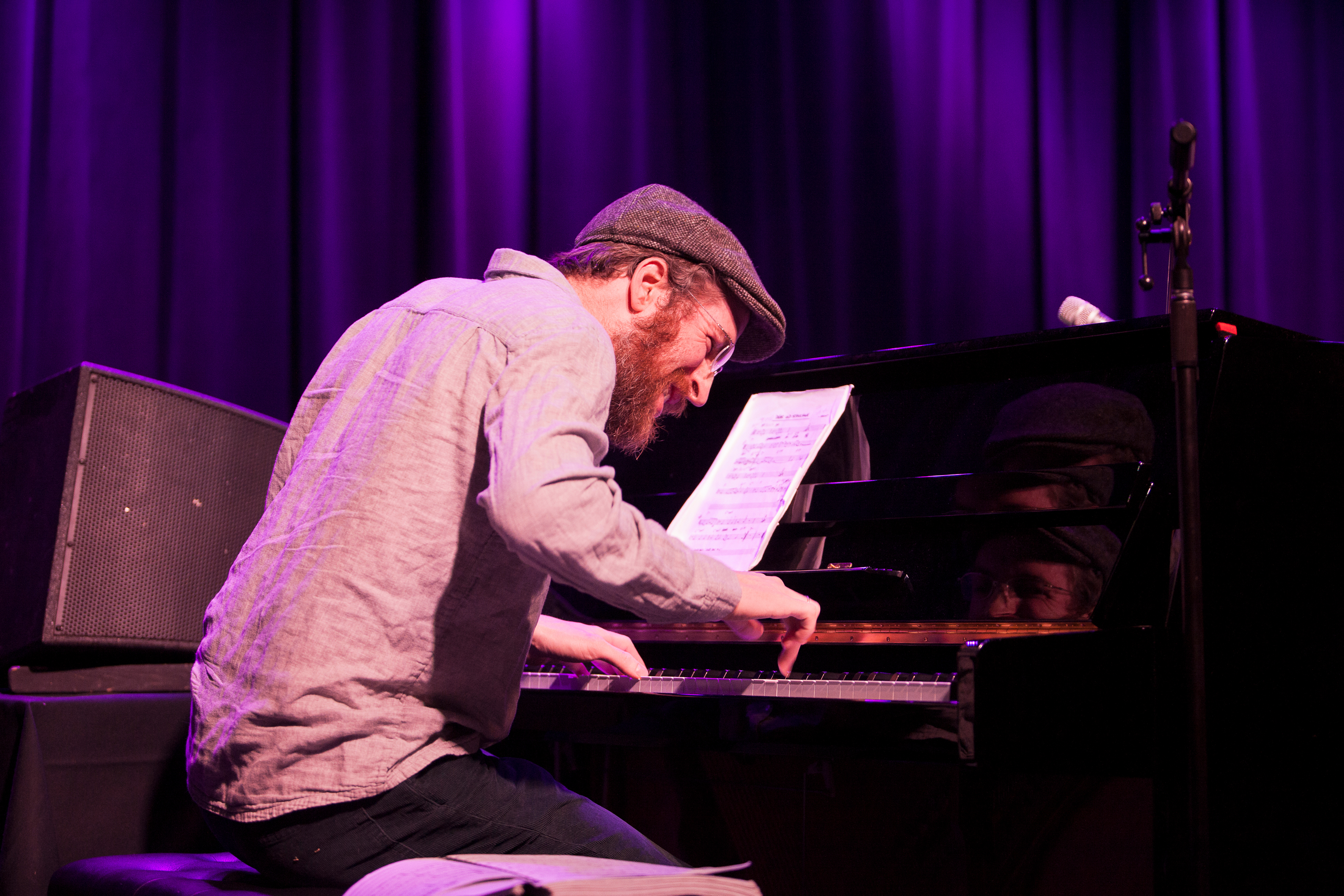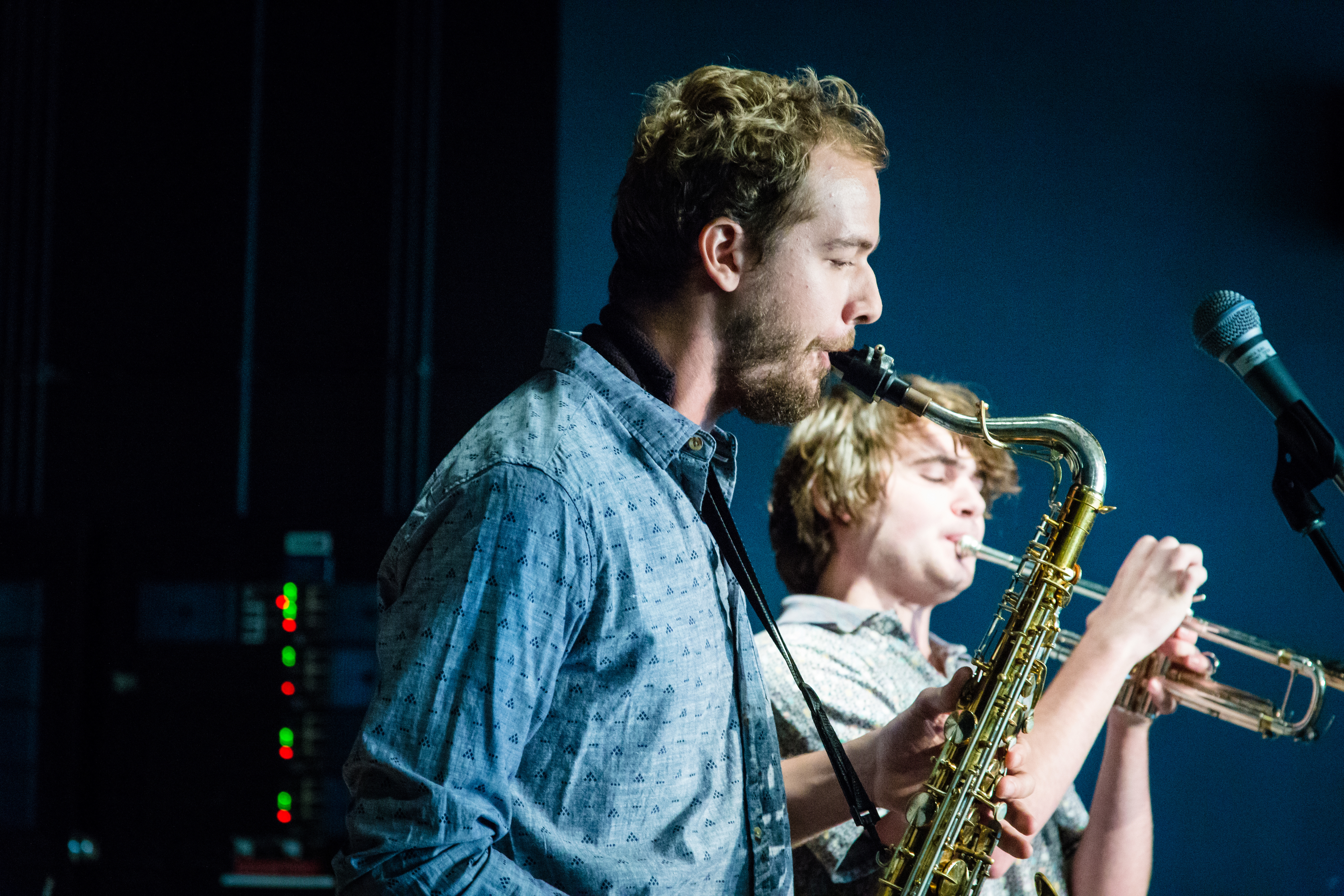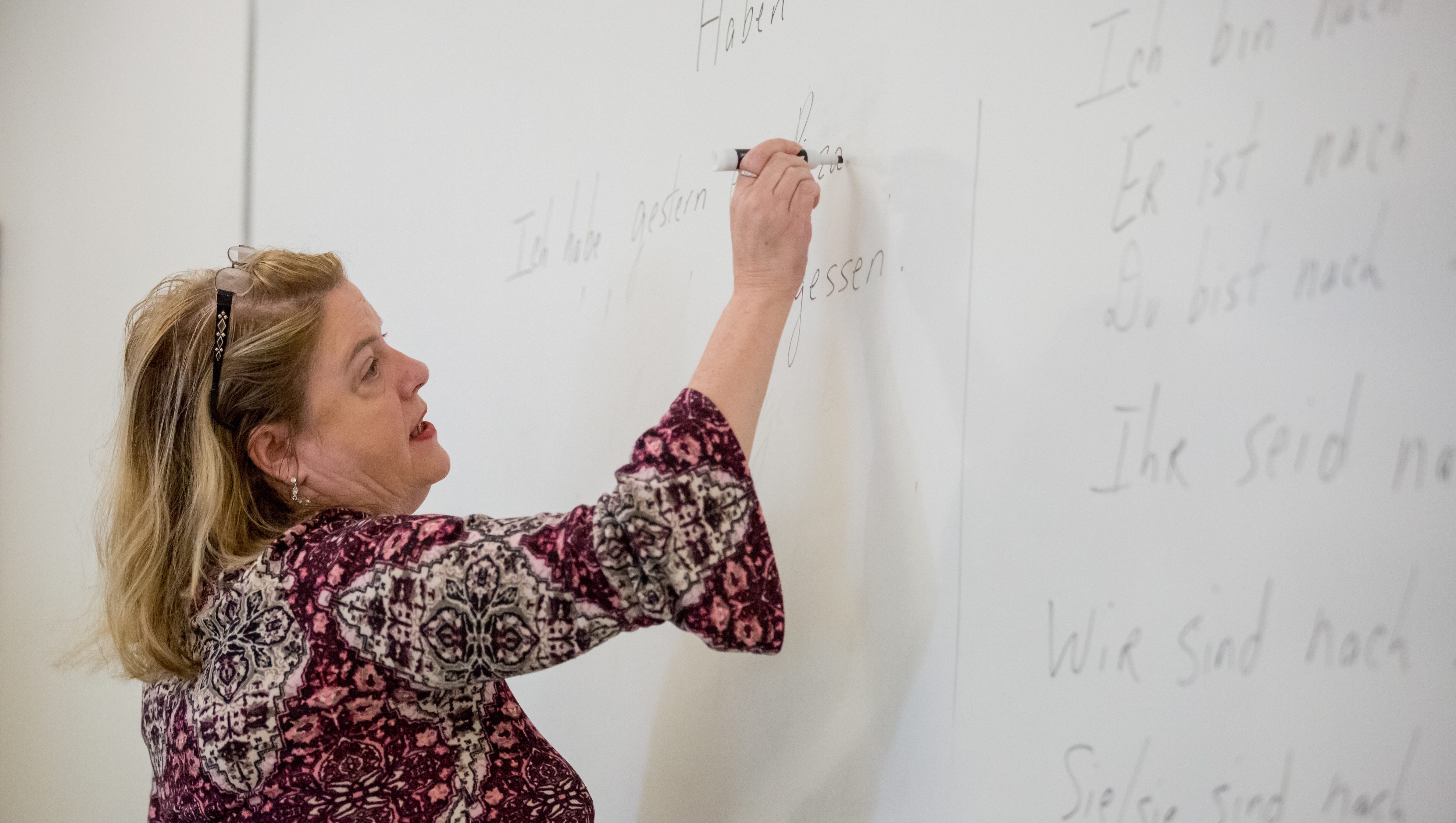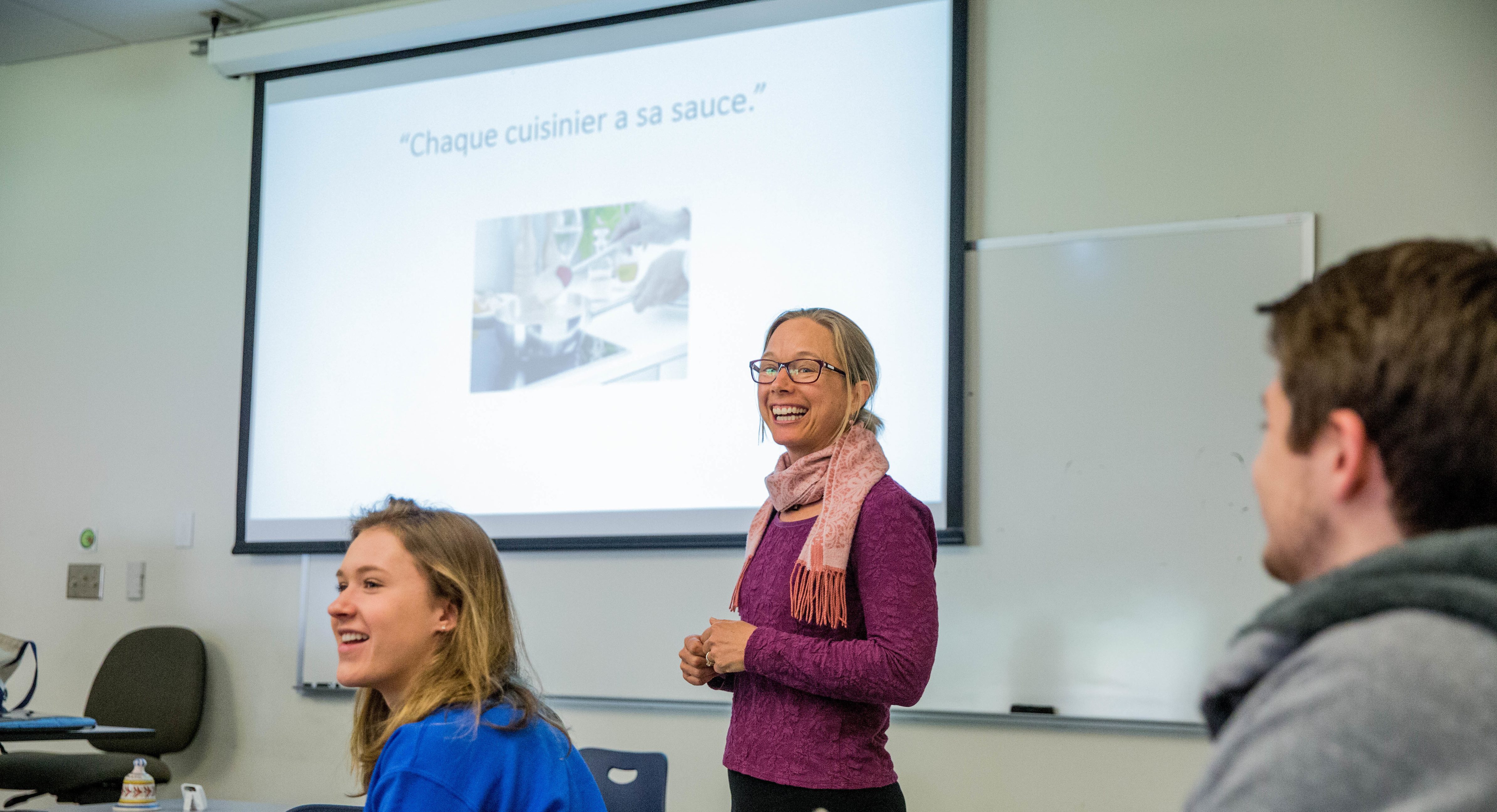
The Interdisciplinary Certificate in Food, Food Systems and Culture focuses on developing the student as an informed consumer of food by providing a platform for discussion of what we eat, why we eat, where our food comes from and its journey from production to consumption, and how food affects our bodies, health and lives.
Certificate Requirements
The Food, Food Systems and Culture Certificate requires the completion of a minimum of 4 courses and 12 semester hours as follows. All courses used for the certificate must be completed at UNC Asheville. The certificate may only be completed in conjunction with the completion of an undergraduate degree at UNC Asheville.
At least one course must be chosen from the listing of Food-focused courses. Food-focused courses have food, food systems or food culture as a central theme and consistently offer students an intentionally interdisciplinary experience (e.g. cross-course project or other high impact pedagogical practice). The remaining three or more courses may be chosen from Food-focused or Food-related courses, following the distribution guidelines required of all interdisciplinary certificates. Other courses may be substituted with approval of the certificate coordinator.
Sample courses include Plants and Humans (biology), The Food of Chemistry, Food Politics and Nutrition Policy, and Pathophysiology of Chronic Conditions and Illnesses.
Interdisciplinary certificates may only be completed in conjunction with the completion of an undergraduate degree at UNC Asheville.
The Certificate in Contemplative Inquiry focuses on creating opportunities for greater inquiry, connection, reflection, insight, and communication. It does so by nurturing and supporting students’ practical and critical first-person experience and inquiry through the use of varied contemplative practices, including mindfulness techniques, meditation, focused thought exercises, beholding, deep listening, reflective writing, contemplative movement, and dialogue.
Contact
Dr. Renuka Gusain
Coordinator, Interdisciplinary Certificate in Contemplative Inquiry & Assistant Professor of Interdisciplinary, International Studies
rgusain@unca.edu

Who We Are
At UNC Asheville’s Music Department, the classical co-exists with the contemporary. We explore the many connections and interactions between music and all facets of human life through instruction and performance. Students learn in cutting-edge classrooms at the only university where music pioneer Bob Moog – inventor of the Moog Synthesizer – ever taught. In addition to being dedicated teachers, our faculty are active musicians who enrich Asheville’s thriving music scene and the cultural life of our campus.
The Bachelor of Fine Arts degree program in Jazz and Contemporary Music is intended for students wishing to pursue careers as singers, instrumentalists, composers and arrangers. These students also make up the various jazz, funk, blues, rock, R&B, fusion, and world ensembles as well as a wide range of vocal groups.
What You’ll Learn
All students must pass an instrumental or vocal audition to be accepted into a music degree program. Our highly selective music technology program combines music, engineering, math, computer science, music business, and electronics to teach students how to professionally mix and record music, while our jazz and contemporary music performance program is ideal for those pursuing careers as singers, instrumentalists, composers, and arrangers. Our Bachelor of Arts degree merges music analytical training with history, anthropology, natural sciences, and philosophy to prepare students for a range of careers or graduate studies. The University Singers, one of several student ensembles, have performed at the White House, while many graduates have found dream jobs working with top artists like R.E.M. and Alison Krauss.
Auditions for Prospective Music Majors
All prospective music majors are required to audition. Please visit our Auditions page for upcoming auditions and more information.

Who We Are
At UNC Asheville’s Music Department, the classical co-exists with the contemporary. We explore the many connections and interactions between music and all facets of human life through instruction and performance. Students learn in cutting-edge classrooms at the only university where music pioneer Bob Moog – inventor of the Moog Synthesizer – ever taught. In addition to being dedicated teachers, our faculty are active musicians who enrich Asheville’s thriving music scene and the cultural life of our campus.
What You’ll Learn
Students wishing admittance to the B.F.A. in Jazz and Contemporary Music or B.S. in Music Technology degree programs must pass an instrumental or vocal audition. An audition is not required for admission to the B.A. in Music degree.
Our highly selective music technology program combines music, engineering, math, computer science, music business, and electronics to teach students how to professionally mix and record music, while our jazz and contemporary music performance program is ideal for those pursuing careers as singers, instrumentalists, composers, and arrangers. Our Bachelor of Arts degree merges music analytical training with history, anthropology, natural sciences, and philosophy to prepare students for a range of careers or graduate studies.
The University Singers, one of several student ensembles, have performed at the White House, while many graduates have found dream jobs working with top artists like R.E.M. and Alison Krauss.
Auditions for Prospective Music Majors
All prospective music majors are required to audition. Please visit our Auditions page for upcoming auditions and more information.
Art & Art History – Who We Are
With a 16-member faculty of acclaimed artists and scholars and a location in the thriving arts scene of Asheville, our small, supportive department of Art and Art History encourages imagination, experimentation, and freedom of thought.
What You’ll Learn
You’ll start by building a foundation of writing skills in art history. Through critiques, you’ll receive valuable feedback on your work from faculty and classmates, and in your senior year, you’ll produce a major research paper. Internships at local museums and galleries allow you to explore career options and acquire professional experience.
Learn More
Visit art.unca.edu for departmental news and updates.

Who We Are
UNC Asheville’s Languages and Literatures Department offers a Bachelor of Arts in Languages and Literatures with a concentration in Spanish.
Through the study of language, culture, and literature, students examine the human experience as an individual and in relation to their local and global community as they prepare for a career. The department encourages travel and study abroad, and faculty are either native speakers of the language they teach or have extensive experience abroad. Our small classes make it easy for students to connect with professors and receive personalized instruction.
What You’ll Learn
We offer a concentration and minor in Spanish. UNC Asheville already has exchange relationships and associations with universities and cultural institutions in several countries around the world — Colombia, Cuba, and Spain, among others, and we encourage our students to study abroad. Students also actively participate in our language clubs, service-learning internships, and undergraduate research.
Who We Are
UNC Asheville’s Languages and Literatures Department offers a Bachelor of Arts in Languages and Literatures with a minor in German.
Through the study of language, culture, and literature, students examine the human experience as an individual and in relation to their local and global community as they prepare for a career. The department encourages travel and study abroad, and faculty are either native speakers of the language they teach or have extensive experience abroad. Our small classes make it easy for students to connect with professors and receive personalized instruction.
What You’ll Learn
UNC Asheville already has exchange relationships and associations with universities and cultural institutions in several countries around the world, including in Germany, and we encourage our students to study abroad. Students also actively participate in our language clubs, service-learning internships, and undergraduate research.
Who We Are
UNC Asheville’s Languages and Literatures Department offers a Bachelor of Arts in Languages and Literatures with a minor in French.
Through the study of French language, culture, and literature, students examine the human experience as an individual and in relation to their local and global community as they prepare for a career. The department encourages travel and study abroad, and faculty are either native speakers of the language they teach or have extensive experience abroad. Our small classes make it easy for students to connect with professors and receive personalized instruction.
What You’ll Learn
UNC Asheville already has exchange relationships and associations with universities and cultural institutions in France, and we encourage our students to study abroad. Students also actively participate in our language clubs, service-learning internships, and undergraduate research.
Who We Are
Through the study of language, culture, and literature, students examine the human experience as an individual and in relation to their local and global community as they prepare for a career. The department encourages travel and study abroad, and faculty are either native speakers of the language they teach or have extensive experience abroad. Our small classes make it easy for students to connect with professors and receive personalized instruction.
What You’ll Learn
We offer a major in Spanish; minors in Spanish, French, and German; as well as classes in Portuguese, Cherokee, and Hebrew. UNC Asheville already has exchange relationships and associations with universities and cultural institutions in several countries around the world — Colombia, Cuba, France, Germany, Spain, among others. We encourage our students to study abroad. Students also actively participate in our language clubs, service-learning internships, and undergraduate research.

Who We Are
At UNC Asheville, studying history is more than just learning about the past. To study history is to study change. Everything we do, use, and study is the product of a complex set of causes, ideas, and practices. The study of history is an enriching process
UNC Asheville’s liberal arts focus challenges history majors to investigate some of life’s biggest questions: What is the nature of humanity? What motivates us? How does the past influence our future? The Department of History’s faculty and students explore these concepts and more through research projects, presentations, and collaborative and creative work. Our experienced faculty members have diverse backgrounds and expertise, and thrive on mentoring each of their students.
What You’ll Learn
History majors learn research techniques, sharpen their writing skills, and apply them to the study of Appalachian history, African-American history, American history, the history of cultures around the world, and the history of ideas. Small classes featuring group discussions help students hone their communication skills, preparing them for careers in business, law, education, government, communications, politics, multimedia, and more. Beyond the classroom, many students present their research at professional conferences and participate in the History Student Association or Phi Alpha Theta, the history honor society.
UNC Asheville is founder and host of the African Americans in Western North Carolina & Southern Appalachia Conference, convened annually by Associate Professor of History Darin Waters. Scholars and community activists from around the region gather for presentations from a variety of disciplines—including sociology, history, anthropology, literature, and others. The goal of the conference is to provide an open forum for scholars to engage each other and our community on the vital issues facing Appalachian communities of color.









